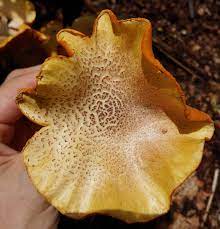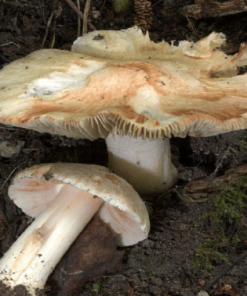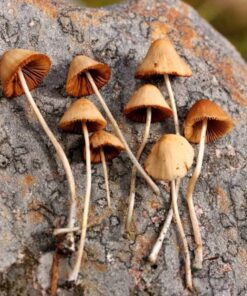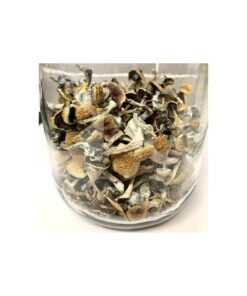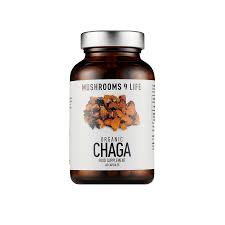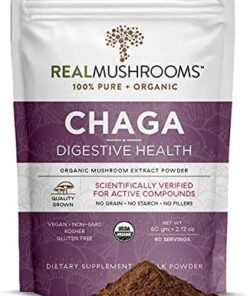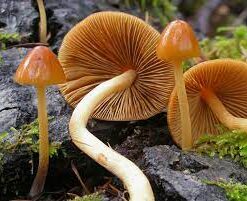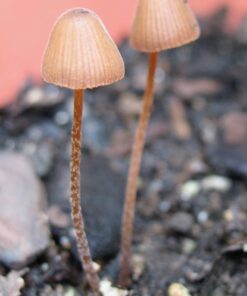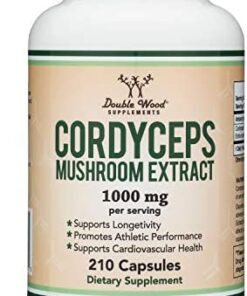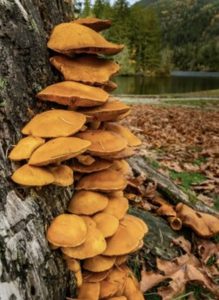
Unveiling the Mysteries of Mushrooms: Exploring Their Health Benefits and Culinary Delights
Mushrooms are a fascinating food with a rich history. They have been used for centuries in traditional medicine to treat a range of ailments. They are also a versatile ingredient, adding depth and flavor to many dishes. Despite their popularity, mushrooms are often underrated and their potential health benefits are often overlooked. In this blog post, we will delve into the mysteries of mushrooms to explore their culinary delights and health benefits. We’ll look at the different types of mushrooms, their unique characteristics, and how they can be used in a variety of dishes. Additionally, we’ll explore the nutritional benefits of mushrooms, including their ability to boost immunity, reduce inflammation, and improve overall health. Join us as we unveil the mysteries of mushrooms and discover why they should be a staple in every diet.
1. Introduction to the fascinating world of mushrooms
Welcome to the fascinating world of mushrooms! These humble fungi have been an integral part of human history and culture for centuries. From their unique shapes and colors to their diverse flavors and textures, mushrooms have captivated the curiosity and palates of people around the globe.
But mushrooms are more than just a culinary delight; they offer a plethora of health benefits that make them truly remarkable. Loaded with essential nutrients, vitamins, and minerals, mushrooms are a powerhouse of goodness. They are low in calories and fat, making them an excellent choice for those seeking a healthy lifestyle. Additionally, mushrooms are a rich source of antioxidants, which can help boost the immune system and protect against various diseases.
The world of mushrooms is incredibly diverse, with thousands of different species found in various habitats around the world. From the delicate and exotic enoki mushrooms to the robust and meaty portobello mushrooms, each variety brings its own unique characteristics to the table. Whether you’re a culinary enthusiast looking to explore new flavors or a health-conscious individual seeking natural remedies, mushrooms have something to offer everyone.
In this blog series, we will delve into the enchanting world of mushrooms, uncovering their health benefits, exploring their culinary versatility, and sharing delicious recipes that showcase their incredible flavors. Get ready to embark on a journey of discovery as we unveil the mysteries of mushrooms and unveil the secrets to incorporating them into your everyday life.
So, grab a mushroom-shaped pen and paper and get ready to explore the enchanting world of mushrooms with us. Let’s dive in and discover the wonders that these fascinating fungi have to offer!
2. The nutritional value of mushrooms
Mushrooms, often classified as a vegetable, are much more than just a tasty addition to your favorite dishes. These versatile fungi offer an array of nutritional benefits that make them a valuable ingredient for anyone seeking a well-rounded and healthy diet.
First and foremost, mushrooms are low in calories and fat, making them an excellent choice for those watching their weight or looking to maintain a healthy lifestyle. They are also naturally cholesterol-free and low in sodium, making them heart-friendly and suitable for individuals with dietary restrictions.
Furthermore, mushrooms are rich in essential nutrients. They are an excellent source of vitamins such as riboflavin (B2), niacin (B3), and pantothenic acid (B5), which play vital roles in energy production and cell metabolism. Additionally, mushrooms contain important minerals like potassium, selenium, and copper, which contribute to various bodily functions, including nerve function, immune system support, and antioxidant activity.
One unique quality of mushrooms is their ability to produce vitamin D when exposed to sunlight or ultraviolet light. This makes them an excellent dietary source of this essential vitamin, especially for individuals who may have limited sun exposure.
In addition to their nutritional value, mushrooms also offer several health benefits. They are known to be rich in antioxidants, which help combat oxidative stress and reduce the risk of chronic diseases. Studies have also suggested that mushrooms may have immune-boosting properties and potential anti-inflammatory effects.
From a culinary perspective, mushrooms add depth and flavor to a wide range of dishes. Their earthy and savory taste makes them a popular choice in soups, stir-fries, pasta dishes, and even as a meat substitute in vegetarian and vegan recipes. With their unique texture and ability to absorb flavors, mushrooms are a versatile ingredient that can elevate any meal.
In conclusion, mushrooms are not only a delicious addition to your plate but also a nutritional powerhouse. Packed with essential vitamins, minerals, and antioxidants, they offer a myriad of health benefits. Whether you’re a health-conscious individual or a culinary enthusiast, incorporating mushrooms into your diet can be a delightful and nutritious choice.
3. Health benefits of mushrooms
Mushrooms are more than just a tasty addition to your favorite dishes; they also offer a plethora of health benefits. These humble fungi are packed with essential nutrients, making them a valuable addition to any balanced diet.
First and foremost, mushrooms are a great source of vitamins and minerals. They are particularly rich in B vitamins, including riboflavin, niacin, and pantothenic acid, which play a vital role in energy production and maintaining healthy skin and hair. Additionally, mushrooms are a natural source of vitamin D, which is crucial for bone health and supporting the immune system.
One of the standout health benefits of mushrooms is their impressive antioxidant content. These antioxidants help protect the body from harmful free radicals, which can lead to chronic diseases and premature aging. Mushrooms contain a unique antioxidant called ergothioneine, which is believed to have potential anti-inflammatory and neuroprotective properties.
Moreover, mushrooms are known to be a good source of dietary fiber. This fiber aids in digestion, promotes feelings of fullness, and helps regulate blood sugar levels. Incorporating mushrooms into your meals can contribute to a healthy digestive system and may even support weight management efforts.
Another notable health benefit of mushrooms is their potential immune-boosting properties. They contain compounds, such as beta-glucans, that have been studied for their ability to enhance the immune response and improve overall immune function. Including mushrooms in your diet may help fortify your body’s natural defense mechanisms.
Furthermore, mushrooms are a low-calorie food option, making them an excellent choice for those looking to maintain or lose weight. They provide a satisfying umami flavor and can be used as a healthy substitute for higher-calorie ingredients in various recipes.
In conclusion, mushrooms offer a wide array of health benefits, ranging from their nutrient content to their potential immune-boosting and antioxidant properties. By incorporating these versatile fungi into your meals, you not only enhance the flavors but also promote your overall well-being. So, why not embrace the wonders of mushrooms and explore the various culinary delights they have to offer?
4. Exploring the different types of culinary mushrooms
When it comes to culinary mushrooms, the options are as diverse as they are delicious. From the earthy and meaty Portobello to the delicate and nutty Chanterelle, each type brings its own unique flavor and texture to the table.
Let’s start with the ever-popular button mushroom. This versatile variety is mild in taste and has a tender texture, making it perfect for sautéing, grilling, or adding to soups and stews. Its compact size and affordable price make it a go-to choice for many home cooks.
For those seeking a more robust flavor, the Portobello mushroom is a must-try. With its large cap and meaty texture, it can be grilled, stuffed, or used as a burger substitute. Its rich umami flavor adds depth to any dish, making it a favorite among vegetarians and meat-lovers alike.
If you’re looking for a touch of elegance, consider the Chanterelle mushroom. These golden beauties have a delicate and fruity aroma coupled with a nutty flavor. They are often sautéed in butter and added to pasta dishes, risottos, or used as a gourmet topping for pizzas and omelets.
For a more exotic choice, the Shiitake mushroom is worth exploring. With its smoky and earthy flavor, it adds a distinctive taste to stir-fries, soups, and Asian-inspired dishes. These mushrooms also have a meaty texture that holds up well to cooking, making them a popular choice in vegetarian and vegan recipes.
Other notable culinary mushrooms include the oyster mushroom, known for its velvety texture and delicate flavor, and the enoki mushroom, with its long, slender stems and mild taste that pairs well with salads and Asian dishes.
Exploring the different types of culinary mushrooms opens up a world of flavor possibilities in the kitchen. Whether you’re a seasoned chef or just starting your culinary journey, these mushrooms offer a range of tastes and textures that are sure to delight your palate and elevate your dishes to new heights. So go ahead, venture into the fascinating world of mushrooms and let your taste buds embark on a culinary adventure like no other.
5. Cooking techniques for mushrooms
When it comes to cooking mushrooms, there are countless techniques that can help you unlock their unique flavors and textures. Whether you’re a seasoned chef or a curious home cook, experimenting with different cooking methods can truly elevate your mushroom dishes to new heights.
One of the most popular and versatile techniques for cooking mushrooms is sautéing. This involves heating a pan with a little oil or butter over medium-high heat and cooking the mushrooms until they become golden brown and tender. Sautéed mushrooms can be enjoyed as a side dish, added to pasta or risotto, or used as a filling for omelettes or sandwiches.
Another technique that brings out the earthy flavors of mushrooms is roasting. Preheat your oven to a high temperature, toss the mushrooms with olive oil, salt, and your favorite herbs, and spread them out on a baking sheet. Roast until the mushrooms are caramelized and slightly crispy on the edges. Roasted mushrooms are perfect for topping pizzas, adding to salads, or serving as a hearty side dish.
For those who prefer a lighter and more delicate mushroom experience, steaming is a wonderful option. Simply place your mushrooms in a steamer basket or a heatproof dish over a pot of simmering water. Cover and steam until the mushrooms are tender, which usually takes just a few minutes. Steamed mushrooms retain their natural moisture and subtle flavors, making them ideal for adding to soups, stir-fries, or even enjoying as a simple side dish.
If you’re feeling adventurous, grilling or barbecuing mushrooms can add a smoky and charred dimension to their taste. Brush the mushrooms with marinade or a drizzle of olive oil, season with spices or herbs, and grill them until they are nicely browned and slightly tender. Grilled mushrooms can be enjoyed on their own, served as a topping for burgers or sandwiches, or incorporated into a grilled vegetable medley.
Lastly, don’t forget about the joys of stuffing mushrooms! Hollow out larger mushroom caps and fill them with a flavorful mixture of cheese, breadcrumbs, herbs, and other ingredients of your choice. Bake until the filling is golden and bubbling, and you have yourself a delectable appetizer or a satisfying main course option.
Whether you choose to sauté, roast, steam, grill, or stuff mushrooms, the possibilities are truly endless. So, let your culinary creativity soar and unlock the mysteries of mushrooms in your kitchen. With these cooking techniques, you’ll be able to savor their health benefits and enjoy the delightful flavors they bring to your dishes.
6. Popular mushroom recipes from around the world
Mushrooms, with their unique flavors and textures, have been a staple in cuisines from around the world for centuries. From delicate enoki mushrooms in Japanese cuisine to hearty porcini mushrooms in Italian dishes, the culinary possibilities are endless. Here are some popular mushroom recipes from different corners of the globe that will surely tantalize your taste buds.
1. Mushroom Risotto (Italy): A classic Italian dish, mushroom risotto combines the earthy flavors of mushrooms with creamy Arborio rice. The mushrooms are sautéed with garlic, onions, and herbs, then simmered with the rice in a flavorful broth until it reaches a rich, creamy consistency. Topped with grated Parmesan cheese, this comforting dish is a true delight.
2. Mushroom and Tofu Stir-Fry (China): In Chinese cuisine, mushrooms are often used in stir-fries to add depth and umami to the dish. This vegetarian-friendly recipe combines thinly sliced mushrooms with tofu, garlic, ginger, and a savory sauce. The mushrooms soak up the flavors of the sauce, creating a deliciously satisfying meal when served over steamed rice.
3. Creamy Mushroom Soup (France): French cuisine is renowned for its rich and velvety soups, and mushroom soup is no exception. This indulgent recipe features a medley of mushrooms, sautéed with onions, garlic, and thyme, then simmered in a creamy broth. Garnished with a drizzle of truffle oil and fresh herbs, this soup is a decadent treat on a chilly day.
4. Stuffed Mushroom Caps (United States): A popular appetizer in American cuisine, stuffed mushroom caps are versatile and can be filled with various ingredients. One delicious variation includes a mixture of breadcrumbs, Parmesan cheese, garlic, and herbs, which is then stuffed into mushroom caps and baked until golden and crispy. These bite-sized delights are perfect for parties or as a savory snack.
5. Mushroom and Spinach Frittata (Spain): Frittatas, a Spanish-style omelet, are a fantastic way to showcase the flavors of mushrooms. In this recipe, sautéed mushrooms are combined with wilted spinach, eggs, and cheese, then baked to perfection. The result is a fluffy and flavorful dish that can be enjoyed for breakfast, brunch, or even a light dinner.
These are just a few examples of the diverse and delicious mushroom recipes enjoyed worldwide. Whether you’re a fan of Asian stir-fries, Italian comfort food, or French delicacies, mushrooms can elevate any dish with their unique taste and versatility. So, embark on a culinary adventure and explore the wonders of mushrooms in your own kitchen.
7. Unique and exotic mushrooms to try
7. Unique and Exotic Mushrooms to Try
If you’re a mushroom lover looking to expand your culinary horizons, there’s a fascinating world of unique and exotic mushrooms waiting to be explored. These distinctive fungi not only offer exciting flavors and textures but also come with a variety of health benefits. Here are a few extraordinary mushrooms that are worth adding to your culinary repertoire:
1. Lion’s Mane Mushroom: Known for its striking appearance, resembling a lion’s mane, this mushroom is not only visually appealing but also boasts numerous health benefits. Lion’s Mane is believed to have neuroprotective properties and is often used in traditional medicine to support brain health and cognitive function. Its delicate flavor and firm, meaty texture make it an excellent addition to stir-fries, soups, or even as a meat substitute in vegetarian dishes.
2. Maitake Mushroom: Also referred to as “Hen of the Woods,” the Maitake mushroom is prized for its rich, earthy flavor and distinct frilly appearance. In addition to being a delicious addition to various dishes, Maitake mushrooms are known for their potential immune-boosting properties. These mushrooms can be sautéed, grilled, or roasted to bring out their robust flavor and tender texture.
3. Enoki Mushroom: With its long, slender stems and tiny button-like caps, Enoki mushrooms add a delightful visual appeal to any dish. These mushrooms have a delicate, slightly fruity flavor and a crisp texture. Enoki mushrooms are commonly used in Asian cuisine and are perfect for adding a refreshing crunch to salads, stir-fries, or even as a garnish for soups.
4. Shiitake Mushroom: One of the most popular mushrooms worldwide, Shiitake mushrooms have a meaty texture and a rich, umami flavor. These mushrooms are not only delicious but also offer a range of potential health benefits. Shiitake mushrooms are known to contain compounds that may support immune function and have anti-inflammatory properties. They can be used in a variety of dishes, from stir-fries to risottos and even grilled as a tasty alternative to meat.
5. Porcini Mushroom: Highly regarded in Italian and French cuisine, Porcini mushrooms have a robust, nutty flavor and a firm, meat-like texture. These mushrooms are often dried and rehydrated to intensify their flavor. They are particularly popular in risottos, pasta dishes, and sauces, adding depth and complexity to the overall taste.
Exploring these unique and exotic mushrooms not only opens up a world of culinary possibilities but also allows you to enjoy their potential health benefits. Whether you incorporate them into your daily meals or reserve them for special occasions, these mushrooms are sure to elevate your culinary experience to new heights. So, step outside your comfort zone and embark on a mushroom-filled adventure that will tantalize your taste buds and nourish your body.
8. How to forage for wild mushrooms safely
Foraging for wild mushrooms can be an exciting and rewarding experience, but it’s essential to prioritize safety above all else. While there are numerous edible varieties of wild mushrooms, there are also toxic and potentially lethal ones that closely resemble their edible counterparts. Therefore, it’s crucial to educate yourself and follow specific guidelines to ensure a safe foraging experience.
First and foremost, never consume a wild mushroom unless you are 100% certain of its identification. Even experienced foragers make mistakes, so it’s advisable to cross-reference your findings with reliable field guides, consult with knowledgeable experts, or join local mushroom foraging groups for guidance.
When venturing out to forage, equip yourself with essential tools such as a sturdy basket or foraging bag, a knife for harvesting mushrooms, and a field guide specific to your region. Familiarize yourself with the habitats and environments in which different mushroom species thrive, as this will increase your chances of finding edible varieties.
Choose locations that are free from pollution, such as heavily trafficked roads, industrial areas, or chemically treated landscapes. National parks, forests, and nature reserves often have rules and regulations regarding foraging, so ensure you are aware of any restrictions before setting off.
It’s important to respect the ecosystem and only harvest mushrooms that are mature and ready for picking. Avoid picking young or small mushrooms, as they may not have had sufficient time to develop their distinct characteristics for proper identification.
While exploring, take note of the mushrooms’ surroundings. Wild mushrooms often have symbiotic relationships with certain tree species, so paying attention to the types of trees present can aid in identification. Additionally, observe the color, shape, texture, gills or pores, and any other distinctive features of the mushrooms you encounter.
Consider attending workshops or guided forays led by experienced foragers to learn firsthand about safe practices and gain valuable insights into mushroom identification. These opportunities can be a great way to enhance your knowledge and connect with like-minded individuals.
Remember, foraging for wild mushrooms can be an enjoyable and fulfilling hobby, but it’s vital to prioritize safety, education, and responsible harvesting practices. By following these guidelines, you can embark on a fascinating journey to uncover the hidden treasures of the mushroom kingdom while ensuring a delightful and safe culinary experience.
9. The role of mushrooms in traditional medicine
Mushrooms have been used in traditional medicine for centuries, playing a significant role in various cultures around the world. These incredible fungi have been revered for their medicinal properties and have been incorporated into traditional healing practices in different ways.
In Eastern medicine, particularly in countries like China and Japan, mushrooms have long been recognized for their potential health benefits. Traditional healers have utilized specific mushroom varieties for their immune-boosting properties, adaptogenic effects, and potential anti-inflammatory and antioxidant properties.
One such mushroom that has gained immense popularity is the Reishi mushroom, also known as the “mushroom of immortality” in Chinese culture. Reishi mushrooms have been used for centuries to support overall well-being and promote longevity. They are believed to enhance the immune system, reduce stress, and improve sleep quality.
Another notable mushroom in traditional medicine is the Cordyceps mushroom, renowned for its energy-boosting properties. Cordyceps have been traditionally used to combat fatigue, enhance physical performance, and improve respiratory health. It is believed to increase oxygen utilization and improve endurance, making it a popular choice among athletes.
Lion’s Mane mushroom is yet another remarkable variety that has been utilized in traditional medicine. It is known for its potential cognitive benefits, including enhancing memory, concentration, and overall brain health. Lion’s Mane is believed to stimulate nerve growth factor (NGF) production, which is essential for the development and maintenance of healthy brain cells.
While scientific research is still ongoing to fully understand the mechanisms behind these health benefits, the traditional use of mushrooms in medicine has sparked interest and exploration in the field of modern healthcare. Mushrooms are now being studied for their potential in treating various health conditions, including cancer, cardiovascular diseases, and neurodegenerative disorders.
In addition to their medicinal properties, mushrooms also offer a delightful culinary experience. Their unique flavors and textures make them a versatile ingredient in various cuisines across the globe. From savory dishes like mushroom risotto, stir-fries, and soups to adding a rich umami taste to vegetarian and vegan dishes, mushrooms have become a staple in many kitchens.
As we delve deeper into the mysteries of mushrooms, it becomes evident that they have much more to offer than meets the eye. From their rich history in traditional medicine to their delectable role in the culinary world, mushrooms continue to captivate and amaze. Incorporating mushrooms into our diets and exploring their potential health benefits can be a fascinating journey of discovery and well-being.
10. Fun facts and myths about mushrooms
Mushrooms have long been a source of fascination and intrigue, surrounded by a veil of mystery. As we delve deeper into the world of these peculiar fungi, let’s uncover some fun facts and debunk a few myths along the way.
1. Ancient Superfood: Mushrooms have been consumed by humans for centuries, dating back to ancient civilizations like the Egyptians and Greeks. They were revered for their medicinal properties and believed to promote longevity and vitality.
2. Magical Mycelium: The part of the mushroom that lies beneath the surface, known as mycelium, is a vast network of thread-like structures that connect and communicate with the surrounding environment. It plays a crucial role in nutrient absorption and decomposition.
3. Busting the Poisonous Perception: While it’s true that some mushrooms are toxic and can cause harm if ingested, the majority of mushrooms found in grocery stores and used in culinary applications are safe to eat. However, caution should still be exercised when foraging in the wild.
4. Immune-Boosting Powerhouses: Certain mushrooms, such as shiitake, maitake, and reishi, are known for their immune-boosting properties. They contain compounds that stimulate the production of immune cells and enhance overall immune function.
5. The Umami Sensation: Mushrooms are often hailed as the “vegetarian’s meat” due to their rich, savory flavor known as umami. This distinctive taste adds depth and complexity to dishes, making mushrooms a versatile ingredient in both vegetarian and meat-based recipes.
6. Decomposition Champions: Mushrooms play a vital role in the ecosystem as nature’s recyclers. They break down organic matter, such as fallen leaves and dead trees, returning nutrients back to the soil and facilitating new growth.
7. Psychedelic Misconceptions: While certain species of mushrooms contain psychoactive compounds like psilocybin, which can alter perception and induce hallucinations, these are not the mushrooms commonly found in grocery stores or used in cooking.
8. Sustainable Saviors: Mushroom cultivation requires minimal resources compared to conventional agriculture. They can be grown indoors, utilizing recycled agricultural waste as a substrate, making them an environmentally-friendly food choice.
As we unravel the fascinating world of mushrooms, it’s important to separate fact from fiction. So, the next time you encounter these humble fungi, appreciate their unique qualities and embrace the delightful culinary experiences they have to offer.
contact us here to buy mushrooms
click here to view our products
Mushrooms
Mushrooms
Mushrooms
Mushrooms
Mushrooms
Mushrooms
Mushrooms
Mushrooms
Mushrooms
Mushrooms
Mushrooms
Mushrooms

